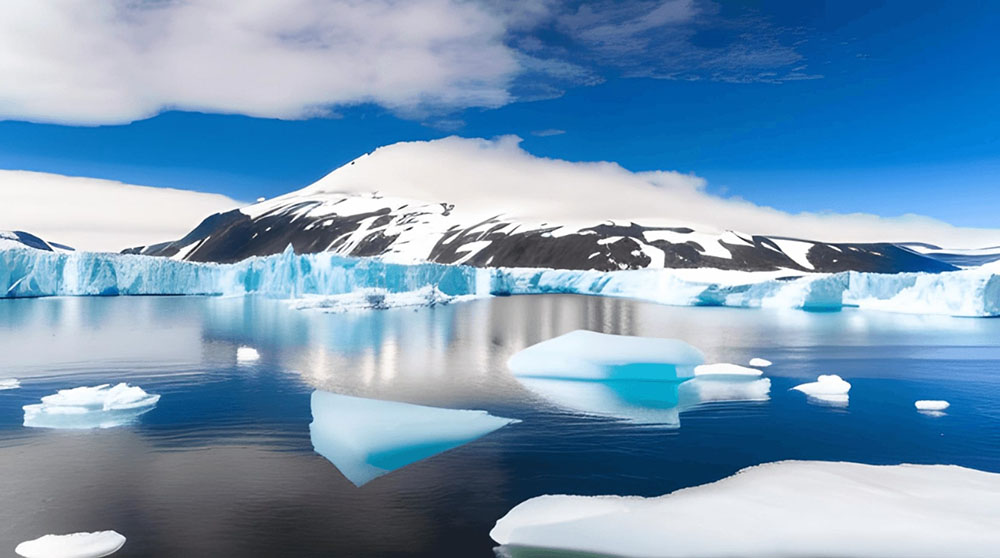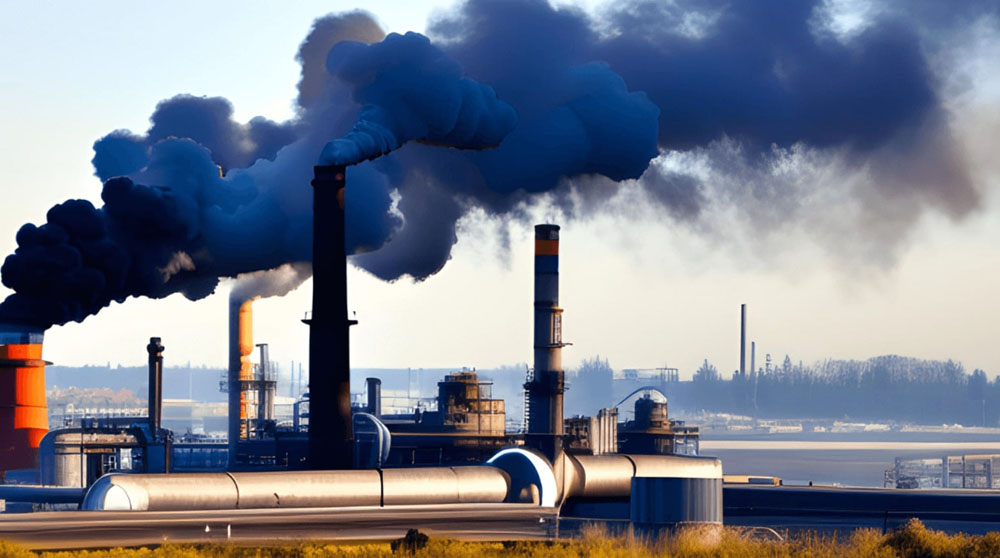
Everyone is talking about global warming. Swedish schoolgirl Greta Tunberg has played an important role in this, finally drawing proper attention to the problem. "OneWeather", meanwhile, answers the embarrassing questions about global warming: whether it exists at all and whether it will make things better or worse.
Is global warming real?
Briefly. It is real. Just look at the data.
Global warming is an observable fact; it does not depend in any way on the opinion of scientists or politicians. It is enough to look at the dynamics of the average annual temperature on the planet. This data is available from the Climatic Research Unit (University of East Anglia) and Met Office. Also you can get the data for individual weather stations on NASA website, analyze it yourself, and form your own conclusions.
Warming can be seen not only by direct measurements of surface air temperature, but also by indirect data. For example, it is clearly visible by the rise of the global ocean level. The rise of the sea level can be explained by the simple thermal expansion of water - water, like any substance, expands when heated, which on a global scale leads to an increase in sea level. There is also a lot of other data: the decreasing area of snow and sea ice in the Arctic, melting glaciers, and others.
And how much warmer is it now?
Briefly. About one degree Celsius.
For the zero mark climatologists usually take the average global temperature in the XX century or in the pre-industrial period (1850-1900), but these values do not differ almost from each other. It is about +14 degrees Celsius. Incidentally, this is 32 (and now 33) degrees more than it would be if there were no greenhouse gases and no atmosphere at all around the Earth.
Is it a lot or a little? The latest major IPCC report compares two climate change scenarios. In the first scenario, temperatures rise by another half a degree, to +1.5 above pre-industrial levels, and in the second, by another degree, to +2. This seemingly small difference, but according to the report, it has huge implications for polar regions, marine ecosystems, the frequency of flooding and so on.

The climate is changing all the time. What's unusual about global warming?
Briefly. It is not the absolute values of temperature that are important, but the rate of change.
The climate is indeed constantly changing. And over the 4.5 billion years of the Earth's existence, it has been both much warmer and much colder than it is now. However, even if you put all the available global temperature values into one timeline, you can see that the rate of increase has never been so high.
Of course, data on the planet's distant past are not as accurate as modern measurements, so we could theoretically miss some short-term temperature spikes. However, at least for the last half a million years, there was nothing like that, and there is no reason to believe that such spikes occurred before.
What is right: global warming or climate change?
Briefly. The correct term is "rapid climate change".
Current climate change is characterized primarily by its anthropogenic nature and speed, not by its direction. There have been many "global warming events" in the history of climate. In addition, while average temperatures are rising almost everywhere on the planet, there is at least one small region in the North Atlantic where overall warming is accompanied by a local drop in temperature. This is due to a slowing of the Gulf Stream and a corresponding decrease in heat transport. Therefore, "rapid climate change" would be the most correct term.
No one can predict the weather for a week for sure, what kind of climate forecast can we even talk about?
Briefly. Weather and climate are different things, and their forecasts are fundamentally different.
Meteorologists, focusing on many particular circumstances, on the current state of the system, calculate its development in the future. Climatologists, on the other hand, simply consider the energy balance, which sets the framework of possible fluctuations: average annual temperatures, average annual precipitation levels, and so on. This framework does not depend on accidents, but on quite measurable and calculable flows of energy and substances.
In order to create a climate change forecast, it is not necessary to know the current weather, it is necessary to measure the amount of energy absorbed by the Earth, the percentage of reflected heat, the composition of the atmosphere, the dependence of evaporation of the oceans on temperature, and so on. These measurements, of course, have their own uncertainties, and they introduce uncertainty into the climate forecast. But this uncertainty is known in advance, it sets a clear framework for the most probable scenario and does not depend on the location of clouds or the flight of a butterfly.

The climate is changing, but what does it have to do with man?
Briefly. While there was no man, the energy balance of the planet was different.
There are two ways to answer this question. First, you can simply ask scientists who work on the subject. Such surveys have been done, and the result is unequivocal - the vast majority of researchers (at least 97%) believe that human activity is the primary cause of rapid climate change. You can read about the methodology for counting opinions here.
If this is not enough, we can try to figure it out on our own. However, the exact contribution of the anthropogenic component to climate change cannot be calculated quickly. To do this, it is necessary to build computer models of the planet, which take into account many factors: the total amount of energy absorbed, its subsequent fate, the transfer of energy by winds and currents, changes in the energy balance under the influence of greenhouse gases, and so on. This is quite complicated work, which is hard to verify "on the spot". But even without complex calculations, the role of humans in climate change can be roughly estimated by comparing several observable facts (not opinions):
- Man is burning fossil fuels.
- The amount of carbon dioxide (CO₂) in the atmosphere is increasing - it is now almost one and a half times the maximums observed in the last half a million years.
- In the northern hemisphere, where most of the fuel is burned, the concentration of CO₂ is higher than in the southern hemisphere.
- Oxygen concentrations are dropping as they would be if they went entirely to fuel combustion.
- Atmospheric carbon dioxide becomes relatively lower in carbon-14 and carbon-13 isotopes, which are absent in oil and coal.
- Carbon dioxide is a greenhouse gas, that is, it is capable of absorbing the Earth's thermal radiation and re-reflecting it back - a simple property of its spectrum.
- Global temperatures are rising at an unprecedented rate.
- The amount of energy coming from the Sun is only dropping.
It seems that even these few facts are enough to draw your own conclusions.
What are the assumptions about the effects of global warming?
A detailed and fairly recent assessment of the economic effect of climate change is given in an article by Stanford researchers in Nature. Armed with historical data, the scientists analyzed the dependence of GDP of different countries in different years on the average annual temperature on its territory and tried to predict how this indicator will differ in two scenarios: if global warming manages to keep within one and a half degrees, and if it reaches and exceeds two degrees above the pre-industrial level.
Two conclusions can be drawn from the calculations: the worst warming in the "bad" scenario will hit the equatorial, mostly poor countries the hardest. While northern countries, such as Russia and Canada, may even benefit economically from "additional" warming. But in this case, global GDP will decrease by 15-25 percent by the end of the century - with such a large-scale global economic crisis, any local gain in the northern countries will be unnoticeable for them.